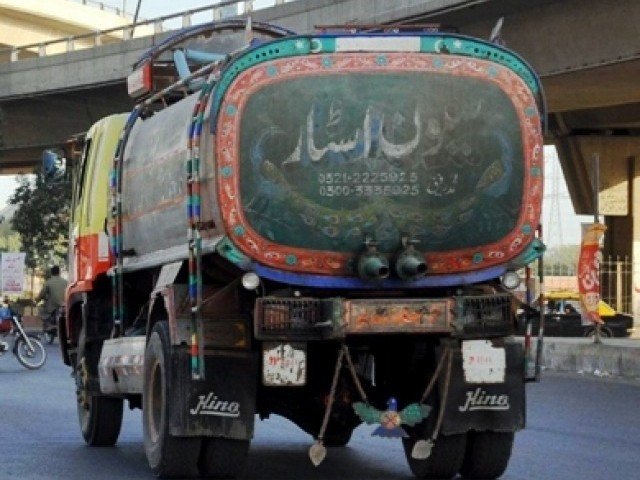
This was directed as a three-member bench of the Supreme Court, headed by Chief Justice Mian Saqib Nisar, heard a suo motu case regarding the acute shortage of water in the federal capital on Wednesday.
Pakistan fails to meet cotton sowing target as water shortage bites
As the court pronounced its ruling, citizens of the capital and local government representatives opposed it and beseeched the apex court to bar private waters tankers from supplying water in the federal capital.
At this, the chief justice observed, “It is a temporary permission which would be reviewed after the monsoon season.”
During Wednesday’s hearing, CJP Nisar observed that long-term solutions to the water crisis would be considered later.
“First of all, we will have to think about measures to overcome the immediate shortage of water,” he maintained.
Citizens, though, expressed the fear that by granting the tankers even a one-time permission could open the door for them to indulge in this lucrative business and that it will be impossible to stop them in the future.
During the proceedings, citizens urged the SC to ask the capital’s mayor about the civic problems faced by the residents, adding that the mayor has often been missing from the metropolis.
Local government officials were also asked about the measures they had undertaken to resolve the water crisis.
Union Council (UC) 12 Chairman Chaudhry Azhar told the court that local government representatives did not receive the requisite funds from the federal government to improve the water supply issue.
Azhar added that they were as incapable of doing anything as President Mamnoon Hussain.
'Pakistan's water woes set to worsen'
This comment, however, did not amuse the chief Justice who promptly chided Azhar for ridiculing the office of the president.
A day earlier, the Islamabad Metropolitan Corporation (IMC) had submitted a report through the Additional Attorney General Nayyar Rizvi in the suo motu case, wherein the local government members stated that main issue they were facing in managing water supply schemes was the non-payment of water charges by government institutions.
According to the report, the IMC claimed that the Rawalpindi Cantonment Board (RCB) and the Rawalpindi Water and Sanitation Agency (WASA) had yet to clear arrears worth of Rs8.6 billion.
It added that the RCB had secured a loan of Rs3.99 billion and Rs870.038 million for operation and maintenance charges until April.
“The recovery of dues amounting to Rs8.6 billion from the RCB, Wasa and the Islamabad Electricity Supply Company (IESCO) shall play a pivotal role in helping the IMC provide municipal services to the residents of Islamabad. In addition to this amount, the Metro Bus Authority has to pay 1.05 per cent of the project cost to IMC for water use,” the corporation told the court.
The report, though, conceded that the city was woefully short of water.
“The existing water resources are almost tapped optimally due to the ongoing development of the city and its population growth, a supply-demand gap persists in Islamabad,” the report had revealed.
It further stated that leakages from the existing water supply network lines, which have outlived their lives, and unaccounted for water including wastage amounts to around 30-40 per cent.
Illegal water connections and water theft is another big issue, the report pointed out.
LDA rings alarm over water shortage
The report says that in order to maintain its existing water supply properly, they desperately needed a cash injection of Rs1.65 billion, which would be utilised for replacing old water supply lines, building small dams, installing new tube wells and improving the water supply infrastructure.
As a long-term solution, it was suggested that water should be brought to the twin cities of Islamabad and Rawalpindi from the Indus River in a project conceived by the Capital Development Authority (CDA). Work on the project is currently underway with Rs500 million earmarked for it in the Public Sector Development Programme (PSDP) for the fiscal year of 2018-19.
Published in The Express Tribune, June 28th, 2018.


1723278472-0/BeFunky-collage-(4)1723278472-0-165x106.webp)



1732530440-5/Copy-of-Untitled-(85)1732530440-5-270x192.webp)

1732525382-0/Express-Tribune-(10)1732525382-0-270x192.webp)

1732523977-0/Copy-of-Untitled-(82)1732523977-0-270x192.webp)






COMMENTS
Comments are moderated and generally will be posted if they are on-topic and not abusive.
For more information, please see our Comments FAQ